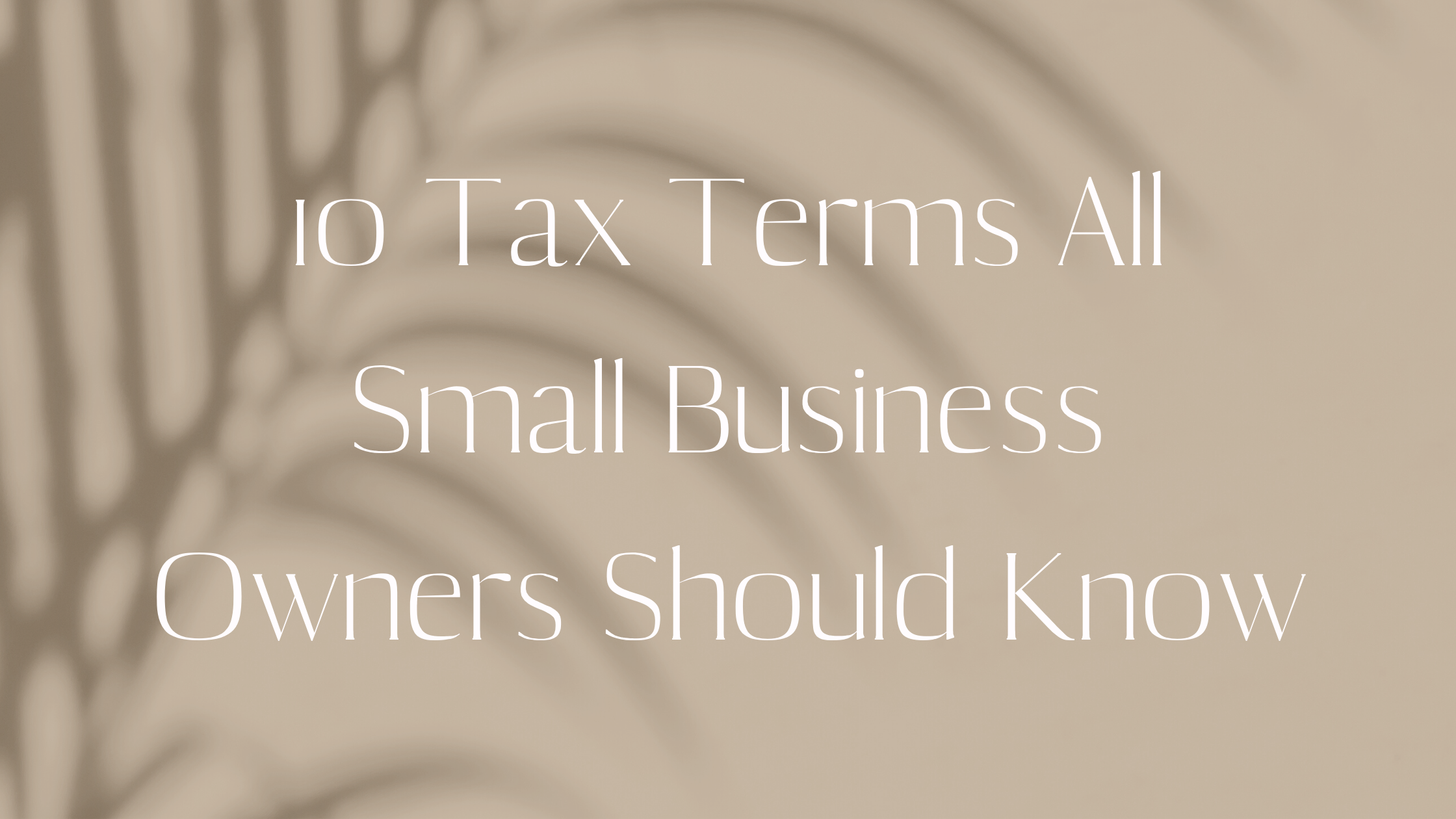10 Tax Terms All Small Business Owners Should Know
As you begin to receive tax documents and compile all your reports, there are some tax terms you should be familiar with. These terms may come up throughout the year as you complete your monthly bookkeeping, while some you may only encounter during tax season.
No matter how often you encounter these tax terms it is important for business owners to have an understanding of what they mean so they can become properly prepared to quickly file their returns.
Consider the terms below and be sure to save this article for when they come up in the future.
Accrual Basis
There are 2 different ways to record transactions in your bookkeeping process: the cash basis and accrual basis. The accrual basis is the process of recording income when it is earned and expenses when they are incurred.
This means if you were to purchase an annual subscription to an online application, the subscription would be spread out over the entire year.
Bad Debt
If you perform work and have yet to be paid, the income will sit as an accounts receivable on your balance sheet. If your client fails to pay, the income turns into a bad debt expense. This is a way of recognizing the expenses performed to complete a job without noting the income.
Bad debt is tax deductible so be sure to make note of it in your bookkeeping process if you ever come across accounts receivable that are uncollectible.
Business Expense
At first, this may seem self explanatory but there is a lot of confusion around what qualifies as a business expense. Many assume it is anything you charge to your business but business expenses must be both ordinary and necessary for your type of business.
For example, a real estate agent paying for their personal dog to have a bath is not ordinary or necessary for a real estate agent. However, the purchase of a new vehicle can be considered a business expense with how often real estate agents are expected to travel.
Cash Basis
As mentioned earlier, there are two different ways to record transactions when completing your bookkeeping. One of those mentioned is cash basis. Cash basis is much simpler than the accrual basis in that income and expenses are recorded when they hit the bank account.
The cash basis process is required for tax reporting purposes.
Form 1099-NEC
Originally independent contractor income was reported on the Form 1099-MISC, however, with the increase in independent contractor work, the IRS created the Form 1099-NEC. This form is used exclusively by contractors to report their income from their labor.
Form 1099-MISC
The Form 1099-NEC is now provided to report contractor labor whereas the Form 1099-MISC is now used to report miscellaneous expenses and income such as rental payments, financial awards, and legal fees paid.
If you are unsure whether you have income or expenses that may show up on the Form 1099-MISC, it is best to check with your accountant.
You May Also Like:
Independent Contractor
When you make the decision to hire you have two choices, employee or an independent contractor. Each option has pros and cons. While independent contractors may be less expensive, you will be giving up more control over how the work is done.
For example, with employees, you can have say over where they do the work, how they do the work, and when they do the work. Independent contractors have more say in these items. To learn more about employees versus independent contractors, click here.
Self-Employment Tax
There are many benefits to being self-employed, however, the self-employment tax is not one of them. As a W-2 employee, your employer is responsible for paying Social Security and Medicare taxes. When you are self-employed those payments are not being made regularly. As a result, it is your responsibility to pay self-employment tax with your annual tax return.
Self-employment tax rate can change from year to year so it is best to check with your accountant for the current year rates.
Tax Credit
A tax credit reduces your tax liability. tax credits can be applied for a number of reasons and change frequently. this is why we recommend working with a tax accountant to ensure you are up-to-date with the current tax credits available.
Tax Deduction
Your tax liability is your tax income minus all applicable tax deductions. In most cases business expenses are tax-deductible. For example, business entertainment expenses are not tax-deductible.
If you'd like to learn more about what business expenses are deductible we recommend reaching out. We would be happy to ensure you get every deduction due to you.
As you continue to collect all the appropriate tax documents, it is important to keep these key terms in mind. These key terms will help you understand your tax return better but it certainly will not replace the vast knowledge accountants have over how to complete tax returns properly.
If you would like to begin working with a tax accountant to complete your return for 2021 send us a message by clicking the button below.

